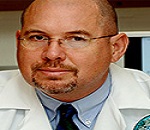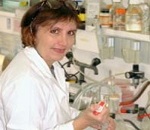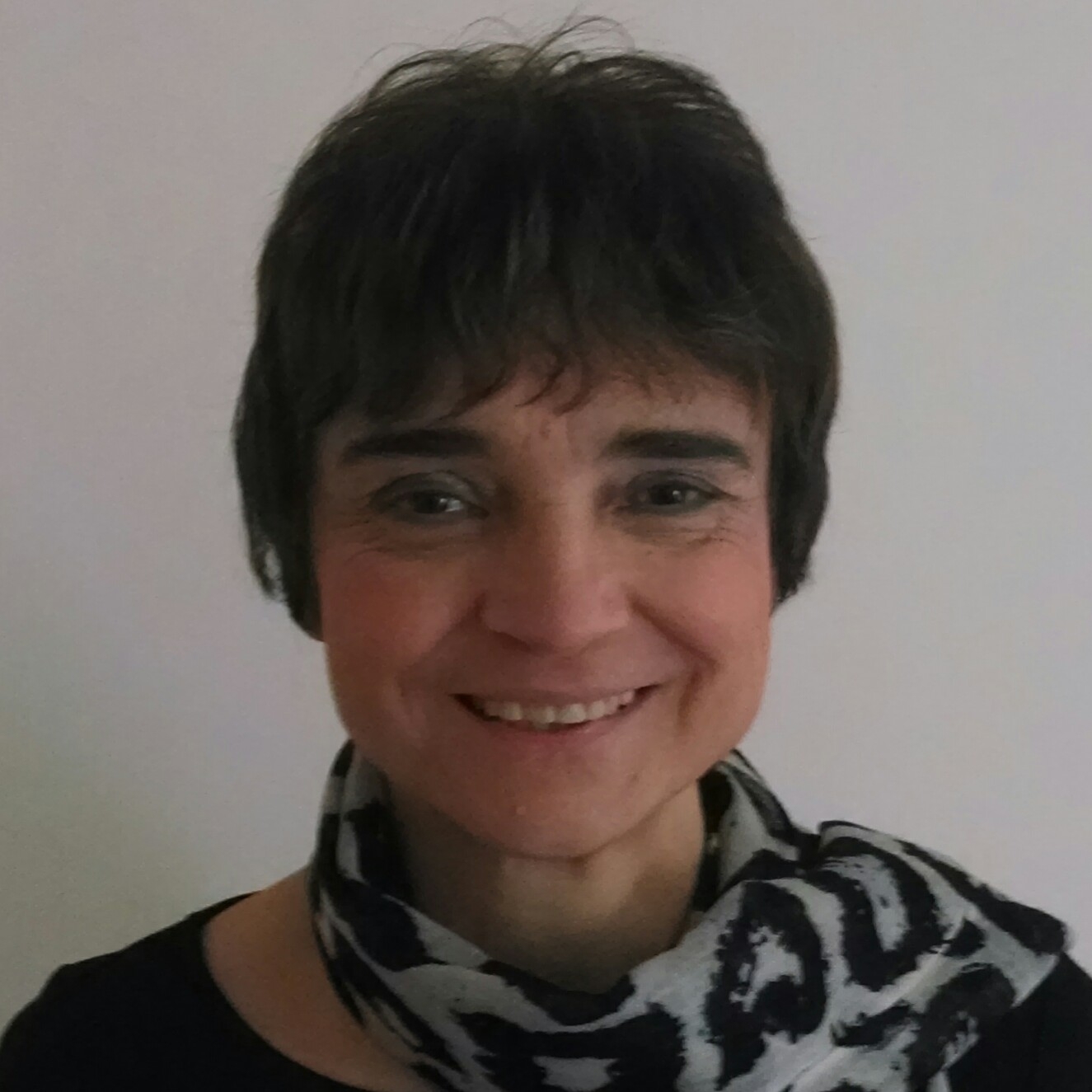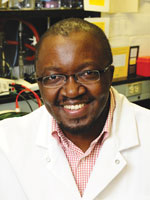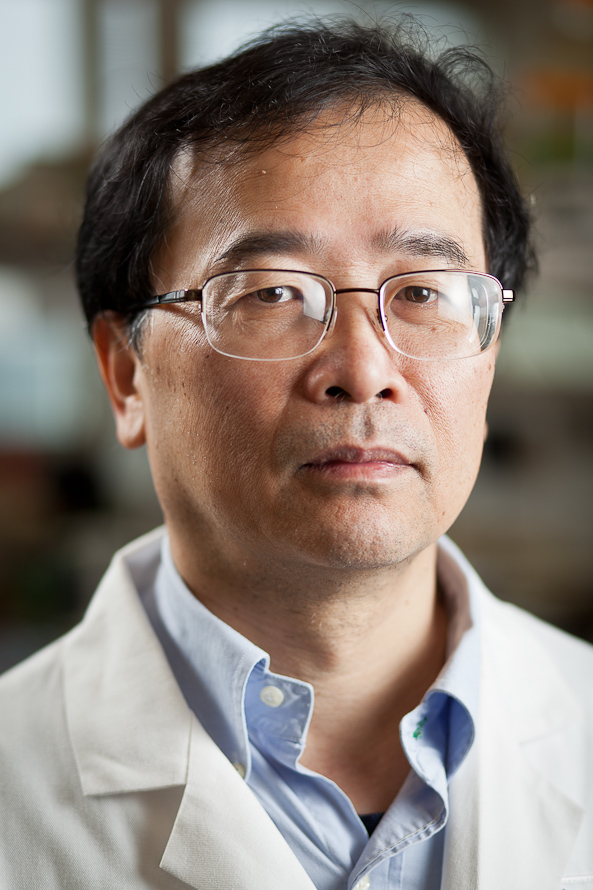Theme: New Discoveries for Better Diagnosis & Treatment for Cancer and Tumour Cells to Bring Awareness
Oncology Nursing 2021
On behalf of the Virtual Meet on Medical Oncology and Tumour cells, we are delighted to welcome you to join the Webinar scheduled on December 06-07, 2021 which is an exceptional gathering for the worldwide prominent scholastics in the field of Medical Oncology and Tumour Cells where Directors, Scientists, Professors, Research scholars, Postdocs, Academic Staff are about to share their research work and acquiesce new emerging technological trends in the conference areas
Oncology Nursing 2021 is an International platform to adverse and study about the early detection as well as treatment care based on Professional standards, and intense research to complete cure for the Cancer & tumor diagnosis, prevention, and treatment of diseases of the organ specific cancers and including the latest techniques. The conference contains significant international experts in Doctors, research scholars and general practitioners, Student Delegates and Exhibitors form all over the world to our webinar with the theme “New Discoveries for Better Diagnosis & Treatment for Cancer and Tumor Cells to Bring Awareness”. Webinar will be featuring oral presentations, poster presentations, keynote talks, workshops and many more.
The conference will focus on Oncologists, Cancer & Oncology Societies Professionals, T-cell and non-T-cell therapies specialists, Pathologists, Radiologists, Chemotherapists, Business delegates, Oncology Nurses, Cancer Immunology & Immunotherapy, Oncology Doctors, Community care coordinators, Researchers, Pharmacists, Oncology Physicians, Social Workers, Students, Medical Directors, Pharmacists, Oncology Specialist, industry professionals, Clinical oncologists, Oncology Psychiatry, Cancer Associations, Research Scholars.
Scope and Importance:
Oncology Nursing 2021 aims to discover advances through this conference is to raise awareness about the second leading cause of death all around the globe is Cancer and the number of deaths from cancer continues to increase each year. Cancers are huge family of diseases that can kill mammels in a matter of years or months. The history of diagnosis of cancer was started back in 1728 and it has been evolved through all these years and study about the early detection as well as treatment care based on Professional standards, and intense research to complete cure for Cancer & tumor diagnosis, prevention, and treatment of diseases of the organ specific cancers and including the latest techniques. The Conference is to give a platform to academicians and practitioners from multiple disciplines to debate and deliberate on social change that is covered by innovation and technology.
Who can attend?
Oncology Nursing 2021 brings together individuals who have an interest in different fields of Medical Oncology and Tumor cells like, Oncologists, Cancer & Oncology Societies Professionals, T-cell and non-T-cell therapies specialists, Pathologists, Radiologists, Chemotherapists, Business delegates, Oncology Nurses, Cancer Immunology & Immunotherapy, Oncology Doctors, Community care coordinators, Researchers, Pharmacists, Oncology Physicians, Social Workers, Students, Medical Directors, Pharmacists, Oncology Specialist, industry professionals, Clinical oncologists, Oncology Psychiatry, Cancer Associations, Research Scholars. It is a forum to discover issues of mutual concern as well as exchange knowledge, share evidence, thoughts, and make solutions.
Why to attend?
Oncology Nursing 2021 is one of the world's leading scientific conferences to bring together all the participants to exchange about state of the art Research and Technologies and to bring discoveries of advancing the Cancer & tumor diagnosis, prevention, and treatment of diseases of the organ specific cancers and including the latest techniques. Attending International conference is being the Professional Development and to get the current state of research and the challenges to future discovery.
Webinars are for a person who, without travelling, desires to retain their clinical education. They are interactive offerings that offer case-primarily based totally presentations, on line reviews, and stay conversations with key opinion leaders that consist of beneficial recommendation in your normal scientific practice.
Target Audience:
Oncologists| Cancer Society’s Professionals| T-cell and non-T-cell therapies specialists| Pathologists| Radiologists| Chemotherapists| Business delegates| Oncology Nurses| Cancer Immunology and Immunotherapy| Oncology Doctors| Community care coordinators| Researchers| Pharmacists| Oncology Physicians| Social Workers| Students| Medical Directors| Pharmacists| Oncology Specialist| industry professionals| Clinical oncologists| Oncology Psychiatry| Cancer Associations| Research Scholars| Students and others interested in the field of Medical Oncology and Tumour Cells
The branch of medicine dealing with the prevention, diagnosis, and treatment of cancer is referred to as Oncology. Cancer is that the abnormal and uncontrollable growth of a cell, which doesn't obey the body's control mechanism and grow out of control, forming new, abnormal cells. Different types of cancer prevail, behaving differently despite of their characteristics to grow, divide & re-divide.
Medical oncologists are doctors who diagnose, assess, treat and manage cancer patients and conduct research that has practical applications. They aim to supply the most effective possible outcome for cancer patients, whether that's cure, or palliation and prolongation of excellent quality life. They provide counselling for patients and their families.
Diagnosing cancers, discussing treatment options with patients and supervising drug treatment and therapies, supporting patients and overseeing their care, including their lives after treatment are a part of their roles.
Medical oncologists treat patients whose cancer has potentially been cured by surgery except for which further therapy improves their outlook.
Medical oncologists treat conditions such as colorectal cancer, breast cancer, lung cancer, ovarian cancer, urological cancers, leukaemia, and melanoma. Common procedures include chemotherapy, endocrine therapy and biological therapies like antibodies, small molecules and immunotherapy.
Most cancer deaths are caused by haematogenous metastatic spread and subsequent growth of tumour cells at distant organs. Disseminating tumour cells present in the peripheral blood and bone marrow can be detected and characterized at the single-cell level. These cells are highly relevant to the study of the biology of early metastatic spread and provide a diagnostic source in patients with overt metastases.
Uncontrolled cellular growth originates enormous spectrum of diseases called cancers. A tumour cell is a cell that grown beyond control. In contrast to typical cells, tumour cells ignore signs to quit separating, to specialize, or to die and be shed. Becoming in a wild way and incapable to perceive its own common limit, the cancer growth cells may spread to regions of the body where they are not supposed to.
5. Cancer Immunology and Immunotherapy:
The field of clinical immunology has evolved from serological testing for the presence of antibodies to infectious agents to a multifaceted discipline that utilizes a number of the normal techniques in addition to many newer more sensitive assay systems. Yet it's still involved evaluation of the system of patients and therefore the ability of the system to reply to antigenic stimuli. Current technologies have created expanded opportunities to diagnose infectious, autoimmune, and allergic diseases with new tools.
Immunotherapy is the "treatment of disease by persuading, enhancing, or suppressing an immune response “Immunotherapies designed to elicit or amplify an immune response are underground as activation immunotherapies, while immunotherapies that reduce or suppress are classified as suppression immunotherapies. Immunomodulatory regimens often have fewer side effects than existing drugs, as well as less potential for creating resistance when treating microbial disease.
Cell-based immunotherapies are actual for some cancers. Immune effector cells such as lymphocytes, macrophages, dendritic cells, natural killer cells (NK Cell), cytotoxic T lymphocytes (CTL), etc., work together to defend the body against cancer by targeting abnormal antigens expressed on the surface of tumour cells.
A brain tumor is occurs when abnormal cells form within the brain. There are two main types of tumours: cancerous (malignant) tumours and benign (non-cancerous) tumours. Malignant tumours can be divided into primary tumours, which start within the brain and secondary tumours
The symptoms of Brain stem tumours vary greatly and can include Ataxia, Cranial Nerve Palsy, headaches, problems with speech and swallowing, hearing loss, weakness, Hemiparesis, vision abnormalities, ptosis, and behavioural changes. Another possible symptom is vomiting. Any brain tumour is inherently serious and life-threatening because of its invasive and infiltrative character in the limited space of the Intracranial Cavity.
7. Tumour biology and Carcinogenesis:
Carcinogenesis may result from the action of any one or a combination of chemical, physical, biologic, and genetic insults to cells. The process of carcinogenesis may be divided into at least three stages: initiation, promotion, and progression. The first stage of carcinogenesis, initiation, results from an irreversible genetic alteration, most likely one or more simple mutations, transversions, transitions, and small deletions in DNA. The reversible stage of promotion does not involve changes in the structure of DNA but rather in the expression of the genome mediated through promoterâ€receptor interactions. The final irreversible stage of progression is characterized by karyotype instability and malignant growth. Critical molecular targets during the stages of carcinogenesis include protoâ€oncogenes, cellular oncogenes, and tumor suppressor genes, alterations in both alleles of the latter being found only in the stage of progression. Although many of these critical target genes have been identified, the ultimate number and characteristics of molecular alterations that define neoplasia have not been elucidated.
8. Cancer Epigenetics and Oncogenomics:
Cancer epigenetics is the study of heritable changes in gene activity or expression without altering the nucleotide sequences in the genetic material. These types of changes include DNA methylation and histone modification in different types of cancer. A variety of epigenetic modifications can be applied such as silencing of tumour suppressor genes or activation of oncogenes, histone modification or dysregulation of DNA binding proteins.
Oncogenomics is a sub-field of genomics that deals with the characterization of cancer related genes. Specifically, it focuses on the genomic, epigenomic and transcriptomic in cancer. It deals with the identification of novel tumour suppressing genes that may be used to find new treatment approach.
9. COVID 19 effect on Cancer Patients:
Coronavirus disease (COVID-19) is a new infection and virulent respiratory disease occurs when virus-containing particles expired by an infected person, either respiratory droplets or aerosols effectuated by severe acute respiratory syndrome coronavirus 2 (SARS-CoV-2). Severe acute respiratory syndrome coronavirus 2 (SARS-CoV-2) is an uncommon severe acute respiratory syndrome coronavirus. Although SARS-CoV-2 has a response for ACE2-expressing epithelial cells of the respiratory tract, patients with severe COVID-19 have symptoms of systemic hyper inflammation.
10. Oncology Nursing and Care:
The oncology nurses have the role of meeting the various needs and caring the cancer patients and advocating them and their families. They focus more on how the cancer patients respond to the cancer and the treatment. The first line of communication for the cancer patients would be oncology nurse.
Radiation oncology is a field of cancer treatment where the tumour is treated with the assistance of the radiations. Radiation treatment utilizes high-energy radiation to contract tumour and murder malignancy cells. X ray-beams, gamma beams, and charged particles are sorts of radiation utilized for cancer treatment.
The radiation might be conveyed by a machine outside the body, or it might originate from radioactive material put in the body close tumour cells. Fundamental radiation treatment utilizes radioactive substances, for example, radioactive iodine, that travel in the blood to murder malignancy cells. About portion of all tumour patients gets some kind of radiation treatment at some point over the span of their treatment.
Radiations subjected to the cancer cells damage the genome of the Cancer cells which ultimately leads to the death of the tumour.
The diagnosis of cancer is done by "Biopsy". A biopsy is a process to remove a piece of tissue or a sample of cells from the body as a sample to analyse in the laboratory. Biopsy is done by using different types of imaging such as Ultrasound, Fluoroscopy, CT scan, X-ray scan or etc.
13. Cancer & Stem Cell Therapy:
When the chemotherapy is not possible, bone marrow transplantation is done with healthy bone marrow cells. Stem cell therapy can be done in the combination of other treatment procedures such as chemotherapy and radiotherapy.
Cancer biomarkers are refer to a molecule or substance secreted by the body in response to presence of tumour cells in the body. Biomarkers are used to identify early stage cancer, or to diagnose the disease condition of patient. It can also be used to define the predictive treatment or monitor the treatment process given to the patients.
Cancer Epidemiology can be defined as the study of identification of carcinogenic factors and cause of cancer. There are many cancer-causing factors such as irregular lifestyle, obesity, tobacco smoking, and alcohol consumption. Other factors known to affect cancer risks are exposure to the radiations and chemicals. Some hormones too, can cause the development of cancer by promoting abnormal cell proliferation such as insulin like growth factors and their binding proteins.
Chemotherapy is the treatment process to cancer which uses the specific drugs that are powerful to kill the fast-growing cells in the host. The most common and often used technique to treat the cancer is chemotherapy which may also causes the painful side-effects.
Cancer pharmacology encompasses study of basic mechanisms of signal transduction related to cell proliferation and apoptosis, mechanism of actions of latest anti-tumour agents and discovery of new drugs, Basic mechanism of DNA damage and DNA repairs and development of novel strategies for gene therapy. It also includes investigation on role of growth factors within the progression of tumours and identification of new signal transduction pathway and new receptors. Other areas of cancer pharmacology research include aberrations within the mechanisms of programmed cell deaths related to tumoral growth, genes related to tumoral growth, interleukin therapy, radical generation and chemotherapeutic resistance.
18. Cancer Prevention & Research:
Cancer is the one of the deadliest diseases in the world today. There are various types of treatments available to prevent or treat cancer. It is also called group of diseases. In major cases, survival rates are very low.
Factors causing cancer can be controlled and therefore, cancer is generally preventable. Greater than 30% of deaths from cancer can be prevented by avoiding risk factors such as tobacco, excess weight or obesity, poor diet and physical inactivity, unsafe sexual mating and air pollution. Not all environmental causes are preventable, such as exposure to radiation and cancer caused through genetic defects.
Current innovations in cancer research are:
- Implantation of radioactive elements at the site of malignant tumour: brain cancer, cervical, prostate and other cancers.
- Precision cancer medicine administration
- Nutraceuticals application
- Stem-cell therapy
- Nano medicine
- Computational imaging of pathology (radiomics and pathomics)
- RNA based transcriptome study
- Dynamic BH3 profiling
19. Cancer Therapy & Treatments:
Cancer treatments and therapies are based on type of cancer a person is suffering from. The major treatments are surgery, radiotherapy, chemotherapy, immunotherapy, hormonal therapy, targeted therapy, laser therapy, palliative care, stem cell transplant and precision medicine. There are also some vaccines to treat a certain type of cancer such as Human papillomavirus vaccine and hepatitis B vaccine.
20. Complementary & Alternative Methods and Cancer:
Complementary medicine is used along with the conventional medicine in order to improve the quality of life. This is a group of health care system and medical system, products and practices adopted at treatment centres, hospice and self-help group. Gentle therapies such as massage, relaxation, and other "healing" therapies play a major role in palliative care which alleviates the side effects, pain and anxiety associated with chemotherapy and cancer treatments in general. Recent studies found that complementary technique is used by the 80% of breast cancer survivors.
Alternative cancer treatments are do not play a direct role in treatment of cancer, rather they may be useful to reduce the sign and symptoms of cancerous cells. Common signs and symptoms that a cancer patient feels such as unusual weight loss, extreme fatigue, nausea and vomiting, pain, anxiety, sore throat, persistent cough, unusual bleeding or discharge, loss of appetite, etc can be reduced by these treatments. Some of the alternative treatments are exercise, meditation, music therapy, aromatherapy, hypnosis, acupuncture, massage relaxation techniques and yoga.
21. Cancer: Lifestyle and Nutrition:
The World Cancer Research Fund gauges that around 20% of all tumours analysed in the US are identified with body heftiness, physical latency, overabundance liquor utilization, or potentially poor nourishment, and in this manner could be counteracted.
Bringing changes to one’s lifestyle and diet can reduce their risk of catching cancer. There are many instances where people have survived cancer with strict diet and following a healthy lifestyle which involves daily activities such as Yoga, Exercise etc.
22. Tumour Virology, Immunology and Cellular Pathology:
The Tumour Virology Laboratory has a strong interest in understanding how HPV enters the target cell. Current studies are focused on understanding how a viral capsid protein, L2, directs the incoming viral genome to the nucleus. In particular, we are interested in how this protein recruits the cellular machinery involved in the regulation of endocytic cargo transport, and ensures the correct trafficking of the incoming viral genome.
Advantages of Participating at our Webinar
- The advantages of the Speaker and abstract pages are created in Google on your profile under your name would get worldwide visibility.
- Our comprehensive online advertising attracts 30000+ users and 50000+ views to our Library of Abstracts, which takes researchers and speakers to our webinar.
- Meet with hundreds of like-minded experts who are pioneers in Geriatric and Gerontology and share ideas.
- All participants in the webinar would have a different reason to participate with eminent speakers and renowned keynote speakers in one-to-one meetings.
- A rare opportunity to listen what the world's experts are learning about from the world's most influential researchers in the area of Medical Oncology and Tumour Cells at our Keynote sessions.
- Oncology Nursing 2021 intensive webinar schedule, you will acquire experience and expertise in strategic gift preparation that is worth its weight golf, forming an impressive array of recognised professionals.
- Best Poster Award nominations.
- Award for Outstanding Young Researcher.
- Group Registration Advantages.
Benefits of Participation for Speaker
- Worldwide appreciation of the profile of Researchers.
- Obtain credits for professional growth.
- Explore the latest of cutting edge analysis.
- Make long-term bonds at social and networking activities.
- An ability to advertise one page in the distribution of abstract books and flyers that ultimately gets 1 million views and adds great value to your research profile.
- Learn a transition beyond your area of interest to learn more about new subjects and studies away from your core subject of Medical Oncology and Tumour Cells.
- We have distinctive networking, learning and enjoyable integration into a single package.
Benefits of Participation for Delegate
- Professional Development-Improve understanding and knowledge.
- Attendance at webinars supports rejuvenates and energises delegates.
- Your involvement in our webinar will help with a new methodology and ideology that can be used to broaden the outcomes of businesses or industries.
- Opportunities for Oncology Nursing researchers and experts in the same field to meet and exchange new ideas through an online webinar.
Benefit of Participation for Sponsor
- Exposure to the international environment would increase the possibility of new companies.
- Opportunity to demonstrate your company's latest technologies, new products, or service your business to a wide range of international participants.
- Increase business by our webinar participants through lead generation.
- It takes a lot of time, effort and drive to create a successful company, so it's always nice to have a network of colleagues and associates to draw energy from individuals who share a common drive and objective.
- Webinars in Oncology provide opportunities for more attention and contemplation that could help you move your company to the next stage.
- Benchmarking main organization plans and moving it forward.
- Get feedback from trustworthy people at our webinar to your company questions and challenges.
- On our webinar banner, website and other proceedings, branding and marketing content, the advertising logo of your company.
Benefit of Association for Collaborators
- Nobody has these massive visitors to Oncology in the world this is the best forum to highlight society.
- Creating long-lasting peer relationships.
- In our webinar banner, website and other proceedings, branding and marketing material, promotional content and your Organization logo will increase your number of subscribers/members by 40%.
- The exposure of our event to your Company listing in the Global Business forum will have a great effect on your association.
- Your representatives can network to update their knowledge and understanding of your organisation and services with key webinar delegates.
- Oncology advertising materials such as posters, brochures, pamphlets, services that will be circulated to hospitals, universities, society and researchers will be integrated with information.
Market analysis:
Cancer is a disease characterized by the abandoned growth and spread of abnormal cells. If the growth of abnormal cells is not controlled, it can result in death. In Worldwide, one in seven deaths is due to cancer. Cancer causes more deaths than AIDS, tuberculosis, and malaria. According to income when countries are grouped, cancer is the second leading cause of death in high-income countries (following cardiovascular diseases) and the third leading cause of death in low- and middle-income countries (following cardiovascular diseases and infectious and parasitic diseases).
Cancer Diagnostics Market:
The global market size of cancer diagnostics is expected to reach $22.7 billion from $7.1 billion in 2020. Growing prevalence of oncologic cases, constant technological innovations in diagnostics, and increasing requirement for effective screening tests are some of the main factors prompting the demand for screening tools across the world.
Rising awareness and supportive government enterprises are some other factors that are anticipated to increase the growth of the sector during the forecast period. The global cancer diagnostics market is fragmented based on technology, application, and region. Increase in aging population and cancer cases are likely to create huge opportunity for cancer diagnostics.
Cancer Diagnostic Market, By Technology
On the basis of technology, the cancer diagnostics market is divided into instrument-based and platform-based. In 2015, the instrument-based segment is predicted to account for a major share of the cancer diagnostics market, by product.
1) Platform Based:
- In situ Hybridization
- Flow Cytometry
- Next-generation Sequencing
- Microarrays
- Others
2) Instrument Based:
- Biopsy
- Mammography
- PET
- Ultrasound
- MRI
- CT
Cancer Diagnostic Market, By Application
Based on the application, the diagnostics market is fragmented into breast cancer, lung cancer, colorectal cancer, melanoma, Leukemia and others. Breast cancer application is expected to account for a major portion of the cancer diagnostics market.
Based on region, the cancer diagnostics market is classified into North America, Europe, Asia, and Rest of the World. Rest of the World includes Latin America, Pacific countries, and Middle East and Africa. North America is predicted as the largest share in the cancer diagnostics market, followed by Europe and Asia.Cancer Diagnostic Market, By Region
Conference Highlights
- Oncology
- Medical oncology
- Tumour Cells
- Cancer Biology & Genetics
- Cancer Immunology and Immunotherapy
- Brain Tumours
- Tumour biology and Carcinogenesis
- Cancer Epigenetics and Oncogenomics
- COVID 19 effect on Cancer Patients
- Oncology Nursing and Care
- Radiation Oncology
- Surgical Oncology
- Cancer & Stem Cell Therapy:
- Cancer Biomarkers
- Cancer Epidemiology
- Cancer Chemotherapy
- Cancer Pharmacology
- Cancer Prevention & Research
- Cancer Therapy & Treatments
- Complementary & Alternative Methods and Cancer
- Cancer: Lifestyle and Nutrition
- Tumour Virology, Immunology and Cellular Pathology
To share your views and research, please click here to register for the Conference.
To Collaborate Scientific Professionals around the World
| Conference Date | December 06-07, 2021 | ||
| Sponsors & Exhibitors |
|
||
| Speaker Opportunity Closed | |||
| Poster Opportunity Closed | Click Here to View | ||
Useful Links
Special Issues
All accepted abstracts will be published in respective Our International Journals.
Abstracts will be provided with Digital Object Identifier by























